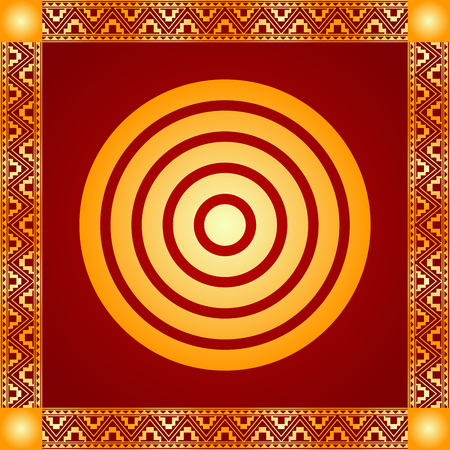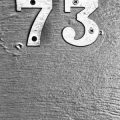Introduction: The Enduring Bond Between Astrology and Indian Royalty
Throughout India’s vibrant history, astrology—or Jyotish Shastra—has maintained a profound and enduring relationship with the country’s royal courts. From the Vedic age to the decline of princely states, kings and nobles across diverse regions such as Rajasthan, Bengal, Tamil Nadu, and the Deccan have consistently sought the guidance of astrologers in governance and personal affairs. Ancient scriptures like the Brihat Samhita, Jyotisha Vedanga, and epics like the Mahabharata are replete with accounts highlighting the importance of celestial knowledge in shaping royal destinies.
This reliance was not merely spiritual but deeply socio-cultural, reflecting pan-Indian beliefs that planetary alignments could influence everything from coronations and military campaigns to marriage alliances. In a traditional context where cosmic order was seen as intertwined with worldly power, astrological consultations became an integral part of courtly rituals and decision-making. The presence of Raj Jyotishis (royal astrologers) in palaces symbolized both wisdom and legitimacy, reinforcing the king’s divine right to rule according to dharma. Thus, understanding the historical role of astrologers in Indian royal courts offers valuable insights into the intersection of governance, faith, and cultural identity that continues to shape Indian society today.
Evolution of Astrologers Status in Royal Households
The role and status of astrologers within Indian royal courts have evolved significantly over the centuries, reflecting broader shifts in the political, religious, and cultural landscapes of the subcontinent. In the early phases of Indian monarchy, astrologers were primarily consulted for auspicious timings (muhurtas) regarding coronations, marriages, and religious ceremonies. However, as princely states grew in complexity, their influence expanded well beyond these ritualistic functions.
Gradual Rise in Authority
During the medieval and early modern periods, especially under the rule of dynasties like the Mughals, Rajputs, Marathas, and various Deccan sultanates, astrologers—often referred to as Jyotishis or Raj Jyotish—began to occupy more formal positions within the royal household. Their advice became integral not only to personal matters but also to statecraft. The trust placed in them by rulers stemmed from a deeply ingrained belief in cosmic order and destiny (karma), making astrological counsel indispensable for governance.
Integration into Royal Councils (Durbar)
Astrologers stature was cemented by their inclusion in the Durbar—the central council where significant administrative and military decisions were taken. They frequently sat alongside ministers (Diwans), military commanders (Senapatis), and spiritual advisors (Rajgurus). Their opinions on planetary alignments influenced decisions ranging from the commencement of military campaigns to treaties and alliances. The following table illustrates the integration of astrologers into key segments of royal councils:
| Royal Function | Astrologers’ Role | Impact on Governance |
|---|---|---|
| Military Campaigns | Selecting auspicious dates for battle initiation | Boosted morale; influenced tactical planning |
| Ceremonial Events | Choosing timings for coronations/weddings | Reinforced legitimacy and divine sanction of rulership |
| Diplomatic Engagements | Advising on propitious times for negotiations/treaties | Shaped foreign policy strategies |
| Agricultural Policies | Predicting monsoons/favorable seasons based on planetary positions | Affected tax collection and famine preparedness |
Participation in Governance and Decision-Making
Astrologers’ active participation extended to advising rulers on succession issues, crisis management during famines or natural calamities, and even guiding architectural layouts according to Vaastu Shastra (traditional Indian architecture principles rooted in astrology). Their recommendations were often recorded in court chronicles and royal edicts, highlighting their institutionalized authority.
Cultural Integration and Societal Acceptance
The respect accorded to astrologers transcended caste and regional boundaries due to their perceived mastery over cosmic knowledge. In several kingdoms, their hereditary appointments ensured continuity of tradition and accumulated wisdom. This unique position enabled them to act as mediators between rulers and subjects, lending an aura of sanctity to political power.

3. Advisory Roles: Shaping Royal Decisions and Statecraft
Throughout Indian history, astrologers held esteemed positions in royal courts, not merely as spiritual guides but as chief advisors whose counsel shaped the very foundation of statecraft. Their expertise was sought during pivotal moments such as Rajyabhishek (coronations), where the selection of an auspicious date and time was believed to ensure a ruler’s prosperity and legitimacy. In many princely states, no coronation ceremony would commence without the consultation of court astrologers, whose calculations based on planetary alignments were considered essential for invoking divine blessings.
The Strategic Counsel in Warfare
Court astrologers’ roles extended significantly into military affairs. Rulers often depended on their predictions to determine propitious moments (Muhurta) for launching campaigns or forging alliances. Prior to major battles, generals and kings consulted astrologers to select timings that promised victory, interpreting celestial omens as indicators of fate. Historical records from kingdoms like Mewar and Vijayanagara underscore how war strategies were influenced by astrological advice, intertwining destiny with tactical planning.
Royal Marriages and Dynastic Alliances
Astrologers were pivotal in arranging royal marriages, which were not only personal unions but crucial instruments of diplomacy. Compatibility checks through Kundali Milan (horoscope matching) ensured harmonious alliances between royal families, minimizing the risk of discord that could jeopardize political stability. Astrologers’ guidance determined auspicious dates for marriage ceremonies and evaluated the long-term prospects of dynastic succession through astrological charts.
Muhurta: Timing as Power
The concept of Muhurta, or choosing precise moments for significant undertakings, permeated all aspects of royal decision-making. Whether initiating construction projects, signing treaties, or commencing journeys, the selection of an auspicious time was viewed as critical to success. Astrologers thus wielded considerable influence over administrative actions, their recommendations often carrying as much weight as those of ministers and generals.
This multifaceted advisory role meant that court astrologers were at the nexus of religion, politics, and culture in India’s royal courts. Their guidance did not merely reflect prevailing beliefs but actively shaped key outcomes in governance and society.
4. Astrological Rituals and Royal Patronage
In the grand tapestry of Indian royal courts, astrologers played a pivotal role not only as advisors but also as ritual specialists entrusted with the spiritual well-being of the kingdom. The performance of astrological rituals and pujas was central to maintaining cosmic harmony, ensuring auspicious beginnings, and safeguarding the interests of rulers. These ceremonies often blended Vedic astrology (Jyotish Shastra) with elaborate courtly customs, reflecting both religious devotion and political acumen.
Key Rituals and Pujas Performed by Court Astrologers
| Ritual/Puja | Purpose | Occasion |
|---|---|---|
| Rajyabhishek Muhurat Puja | To determine and sanctify the most auspicious time for coronation ceremonies | Coronation of Kings/Queens |
| Griha Pravesh Vidhi | Blessing new palaces or royal residences for prosperity and peace | House-warming or inauguration events |
| Yajnas and Homas | Appeasing planetary deities to avert misfortune or calamity | Difficult astrological transits, war preparation, natural disasters |
| Kundali Matching and Dosha Nivaran Puja | Ensuring harmonious royal marriages and resolving horoscope defects | Royal weddings and alliances |
| Nava Graha Shanti Puja | Pacifying malefic planets to protect the kings reign | Before major political or military undertakings |
Impact on Royal Traditions and Court Culture
The integration of astrological rituals into court life deeply influenced royal traditions in India. Auspicious timings (muhurat) determined everything from statecraft decisions to personal milestones within the palace. Astrologers were often consulted before launching military campaigns, signing treaties, or initiating construction projects. Their predictions carried significant weight, shaping both policy and public perception of legitimacy.
Patronage Extended by Kings and Queens
The high esteem for astrologers in Indian royal courts was reflected in generous patronage. Monarchs across regions such as Rajasthan, Mysore, and Travancore conferred titles like “Raja Jyotishi” upon their chief astrologers. In addition to honorific designations, astrologers received substantial rewards as recognition for their services:
| Type of Patronage | Description & Examples |
|---|---|
| Land Grants (Jagir) | Awarded fertile lands or villages; e.g., Maratha kings gifting land near Pune to royal astrologers’ families. |
| Treasures & Wealth (Dakshina) | Presents of gold coins, precious stones, or silk garments after successful predictions or rituals. |
| Courtly Titles & Positions | Nominated as court advisors or given hereditary positions; often involved in state ceremonies. |
| Residential Quarters in Palace Premises | Specially allotted houses within palace complexes for immediate consultation. |
| Pension & Lifetime Annuity Schemes | Lifelong support for astrologers and their descendants by royal decree. |
Cultural Resonance in Contemporary India
The legacy of astrological rituals and royal patronage continues in modern Indian society. Many contemporary families consult astrologers for major life events, echoing practices once reserved for royalty. This enduring tradition highlights the deep cultural roots of astrology in shaping not just individual destinies but also collective histories.
5. Regional Variations and Notable Royal Astrologers
The role and influence of astrologers in Indian royal courts were not monolithic; they varied greatly across regions and dynasties, reflecting the subcontinent’s rich cultural diversity. This section examines the distinctive practices among the Maratha, Mughal, Rajput, and South Indian courts, while also highlighting some of the most illustrious royal astrologers whose legacies continue to inspire awe.
Differences in Astrological Traditions Across Dynasties
Maratha Courts
In the Maratha courts, astrology was deeply intertwined with indigenous religious practices. Astrologers, known locally as “Jyotishis,” played a pivotal role in advising rulers like Chhatrapati Shivaji Maharaj on matters ranging from military campaigns to auspicious timings for coronations. The Marathas often blended astrology with local traditions, making it a uniquely syncretic practice.
Mughal Courts
The Mughal emperors, particularly Akbar and Jahangir, maintained elaborate courtly traditions that included eminent astrologers from both Hindu and Persian backgrounds. Known as “Munajjims” in Persianate culture, these astrologers were respected for their mastery of astronomy and horoscopy, often employing Persian methods such as the use of Zij tables alongside traditional Indian systems. The Mughal court’s openness fostered a cosmopolitan astrological tradition that influenced practices across North India.
Rajput Courts
Rajput courts exhibited a strong adherence to Vedic astrology (Jyotisha Shastra), with royal astrologers consulted for every significant decision—be it martial expeditions or royal marriages. The Rajputs’ emphasis on lineage and ritual purity gave their astrologers considerable social standing, often equating them with Brahmin priests in terms of authority.
South Indian Courts
In the Deccan and Tamil kingdoms, astrology was closely linked with temple culture and Dravidian spiritual traditions. Royal astrologers—often called “Siddhars” or “Nadi Jyotishis”—not only forecasted future events but also engaged in medical astrology (Ayurveda Jyotisha) for the well-being of rulers. The Chola and Vijayanagara empires patronised astrological scholarship, leading to innovations like Nadi palm-leaf manuscripts unique to southern India.
Famed Royal Astrologers in Indian History
Kalyana Varma
Kalyana Varma, author of the renowned astrological treatise “Sārāvalī,” served several South Indian courts during the 10th century CE. His works remain foundational texts for contemporary practitioners.
Raja Jai Singh II’s Court Astronomers
The Jaipur ruler Raja Jai Singh II famously assembled a team of expert astrologers and astronomers at his court in the early 18th century, culminating in the construction of Jantar Mantar observatories across India. His chief astrologer Pandit Jagannath Samrat made significant advancements in both predictive astrology and astronomical instrumentation.
Abul Fazl
A polymath at Akbar’s court, Abul Fazl was instrumental in synthesising Persian astrological knowledge with Indian traditions. As the principal author of Ain-i-Akbari, he documented how astrology was institutionalised within Mughal administration.
Cultural Legacy
These regional variations and legendary astrologers underline how astrology adapted to local customs while shaping political strategies and cultural identities across centuries. Their enduring influence can still be traced in contemporary Indian society—from election dates to wedding muhurats—showcasing an unbroken tradition rooted in royal patronage.
6. Contemporary Legacy and the Transformation of Jyotish in Modern India
The role of astrologers in Indian society has undergone significant transformation since the era of royal courts, particularly after India’s independence in 1947. While the grandeur of princely patronage may have faded, the legacy of jyotish (Vedic astrology) continues to influence contemporary India, albeit in new forms that reflect both continuity and adaptation.
Persistence of Cultural Significance
Despite rapid modernization, astrology remains deeply embedded within Indian cultural practices. From marriage matchmaking to naming ceremonies and business ventures, the consultation of astrologers persists across urban and rural communities. The reverence for astrologers, once reserved for royal advisors, now extends to media personalities, television astrologers, and internet-based experts. This demonstrates the enduring belief in cosmic guidance as a framework for making major life decisions.
Adaptation to Modern Contexts
The practice of jyotish has evolved to meet the demands of a rapidly changing society. Many contemporary astrologers blend traditional techniques with modern technology, offering consultations via smartphones, websites, and social media platforms. The language and presentation have also shifted: English is commonly used alongside regional languages to cater to an increasingly cosmopolitan audience. Furthermore, astrology now intersects with psychology and wellness trends, positioning itself as both a spiritual and lifestyle advisory service.
Changing Social Perceptions
Astrology’s place in public life has been challenged by scientific rationalism and educational reforms. However, its resilience is evident in its adaptation—astrologers today often present themselves as counselors or life coaches rather than mere fortune-tellers. Universities offer courses on jyotish shastra, and televised programs debate planetary influences on politics and economics, reflecting the negotiation between tradition and modernity.
Continuity Amidst Change
While the institutional power of court astrologers has diminished, their symbolic authority persists. State functions and political campaigns frequently invoke astrological timing (muhurat), and celebrities openly seek astrological advice. This ongoing relevance highlights how jyotish adapts without losing its intrinsic value in the collective consciousness.
In conclusion, the legacy of royal court astrologers endures through India’s evolving relationship with jyotish. As Indian society transforms, so too does astrology—retaining its historical roots while embracing innovation to remain culturally significant in modern India.


